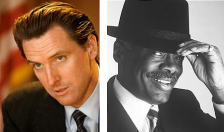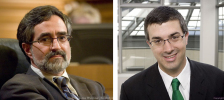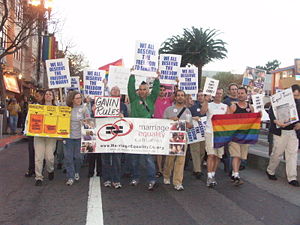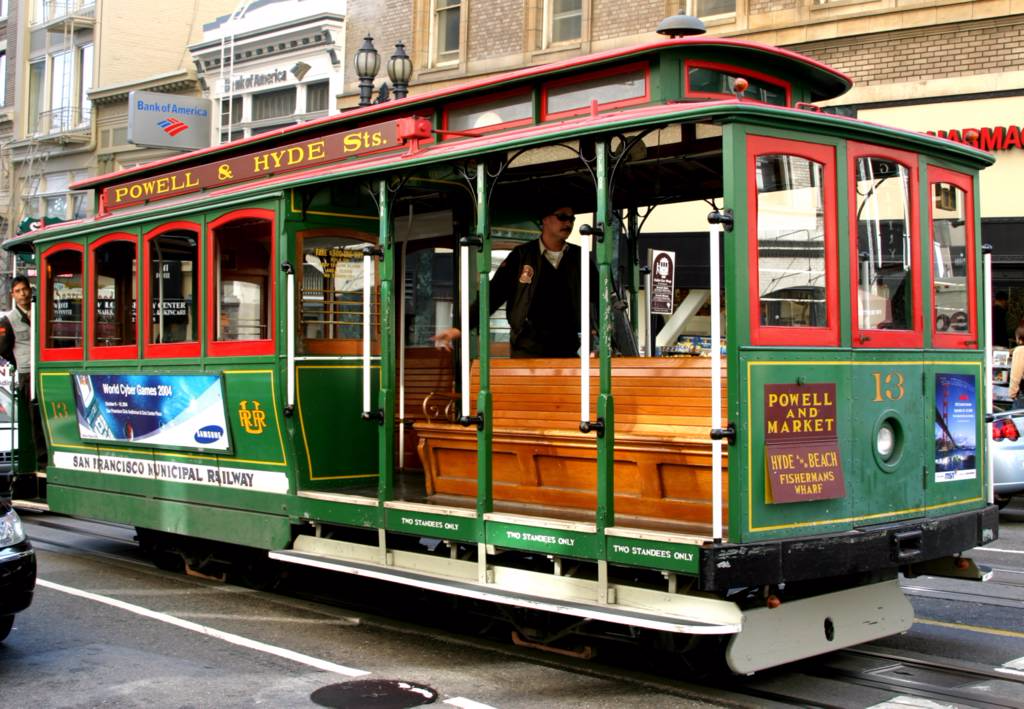San Francisco Bay Guardian, November 24, 1999
BROWN’S BROKEN PROMISES
The mayor has betrayed poor people and progressives again and again.
By Savannah Blackwell
Four years ago, when Willie Brown first ran for mayor, he promised he’d end Frank Jordan’s failed Matrix program. That program consisted of a lot of big talk about services for homeless people and a lot of cops to sweep them from one place to another.
Maybe that sounds familiar?
At the end of his first term, Mayor Brown has broken almost every pledge he made about how he’d treat San Francisco’s poorest residents. Now that he’s facing a challenger from the left in the December runoff, he’s making the same promises all over again.
In an opinion piece published in the San Francisco Chronicle in November 1995, Brown promised to end Matrix-style crackdowns on homeless people.
“We will reorganize the city’s priorities to address the root causes of homelessness: unemployment, too few supportive services for people in need, and too little affordable housing for low-income and working people in our city,” Brown wrote.
That vow was well and truly broken two years later, when – under prodding from Chronicle columnist Ken Garcia – Brown ordered the San Francisco Police Department to evict homeless people from Golden Gate Park (see “Operation Shopping Cart,” 11/12/97)
There were no plans in place to help dislodged park residents find somewhere else to shelter from the winter rains. Many of them lost all the belongings they had stored up over months in the park. Some spent time in jail.
Since then, homeless people have been repeatedly moved from the places where they congregate. Patches of grass in United Nations Plaza were fenced off. Trees in Hallidie Plaza were cut down after local businesses complained about people sheltering from the rain beneath them. Civic Center was cleared of loiterers within months of the reopening of City Hall.
Brown is still talking the talk. In his Oct. 25 State of the City address, he called on San Franciscans to be more tolerant of the poor and indigent people they encounter on the streets.
“I know what it is like to be discriminated against,” Brown said. “If you’re mentally challenged and discriminated against or dependent on some substance – that has got to be horrific. You see your rights eroded. But we don’t want that in the city.”
But the number of citations under so-called quality-of-life ordinances – laws barring activities like sleeping in public or blocking sidewalks, which are commonly used to target homeless people – has increased on Brown’s watch, poverty advocates say. And last summer he added $250,000 to the city budget to fund a special unit in the City Attorney’s Office to enforce those laws.
George Smith, a formerly homeless man who is the mayor’s coordinator on homelessness, told the Bay Guardian that those sweeps were the result of complaints from citizens and that Brown’s policy on homelessness is not a return to Matrix.
“A lot of people are saying we’re returning to Matrix, but I don’t think so,” Smith told the Bay Guardian. “The mayor does say the [quality-of-life] laws should be enforced. But if constituents think that shouldn’t happen, they should say those laws should be changed.”
According to Sister Bernie Galvin of Religious Witness with Homeless People, Brown’s policy looks a lot like Jordan’s.
“He might have dropped Matrix in name, but that is still what is happening,” she told us.
Arrested for charity
Galvin made headlines recently when she was arrested for serving food to hungry people – in another of Brown’s betrayals.
Jordan had made news by taking on anarchist collective Food Not Bombs. In his response to a Bay Guardian questionnaire published Aug. 23, 1995, Brown said he’d stop cops from confiscating soup and bagels intended for hungry people. “Any genuine homeless-outreach program should include needed services such as food, not the misuse of police,” Brown wrote. “We have to reverse the Jordan administration’s Recreation and Park Department’s permit procedure, which prohibits the free distribution of food.”
But as this year’s campaign heated up, it seems, that was no longer the way to win voters. Starting in October, police arrested 13 volunteers in United Nations Plaza – Galvin among them – for handing out food without the proper permits.
(After Galvin and other activists went on a 12-day hunger strike, the city began meeting with the group to discuss permitting.)
Mayoral press secretary Kandace Bender told us Brown had nothing to do with the crackdown and that the decision to arrest volunteers was made by police department officials.
Galvin finds that difficult to believe.
“We know the [police] department is not gong to do something so radically different than what the policy had been without an order,” Galvin told us, “especially two weeks before the election.”
Gimme Shelter
On the campaign trail, Brown has always claimed that homelessness is among the crucial issues facing the city. But his administration’s approach to the problem has been unfocused and lax, according to Paul Boden, coordinator for the Coalition on Homelessness.
Brown’s temporary solutions, such as providing shelter beds at Mission Rock, have been fraught with problems, Boden says. The Mission Rock shelter was recently closed to make way for the new Giants stadium; it’s unlikely those beds will be permanently replaced. Smith says local black ministers are coming up with 200 to 300 additional beds to cover the winter months. While the Mission Rock shelter was open, it was overcrowded and had broken toilets and a leaking roof (see “Home Sweet Home,” 12/16/98).
The coalition estimates that there are 14,000 homeless people in San Francisco on any given night. The number of shelter beds in the city: about 1,400.
“None of this is about setting a foundation for a course of action to address poverty and homelessness that can survive from one administration to another,” Boden told us. “This is about removing the presence of homeless people – doing cosmetic stuff to give the pretense to the electorate that you as mayor have fixed it.”
There’s not better example of that than Brown’s 1996 promise to provide treatment for any substance abuser in San Francisco who wants to get clean, regardless of ability to pay. Legislation that year required the city to provide treatment on demand.
Brown has increased money for the program by $14 million annually, but 1,000 people are still waiting to get in, according to the San Francisco Examiner. The average wait time is three weeks to several months, not 48 hours, as the legislation requires.
Help from on high
Brown is quick to blame external factors for San Francisco’s homeless problem. The city’s generous services, he says, attract poor people from all over the region – and cuts in state and federal funds have hurt mental-health and substance-abuse treatment programs.
But there’s no sign that Brown himself – still a powerful figure in Sacramento and not without influence in Washington, D.C. – has even attempted to push state and federal lawmakers to help the Bay Area (and other regions) address these problems.
“To think we thought he would take on the state and feds was incredibly stupid of us,” Boden told us. “It’s much more important to keep the flow of political money and patronage flowing among local Democratic officials than to actually address the issues.”
Brown has recently begun invoking the need for assistance from on high – perhaps on the assumption that voters will once again hope he can deliver.
“We need the state and federal officials to come in with us,” Brown said at the Nov. 17 mayoral debate, held at the Hall of Flowers. “We need all governments in the region to engage in efforts to see that the homeless problem is controlled.”
But he blew an opportunity to get them on board when he canceled a planned homelessness summit less than a year into his administration.
A host of groups that work on homelessness and poverty issues had gathered research and data for months in preparation for the meeting. But in September 1996, when the Poverty and Homelessness Summit Planning Committee asked for a little more time to finish its preparatory survey, Brown abruptly called off the forum and declared the problem of homelessness “unsolvable.”
Smith said Brown needed time for his staff to study the issue. “We wanted to step back and look at the outcomes,” he said. But Boden says Brown should have moved forward in 1996.
“This was at a time when we were looking at HUD cuts, at SSI cuts, at the whole federal welfare reform package,” Boden told us. “It was a perfect opportunity to get everyone into one room – people from the local, state, and federal level who know what works and doesn’t work, and off of that get a baseline of collective knowledge from which you create a line of action. But it was canceled, and everything that went into it was blown off.” ■







